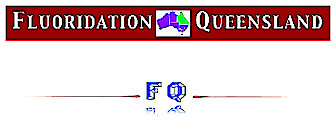You are here: Home1 / Iodine Awareness Week – Antimicrobial Resistance Emergency +

Iodine Awareness Week –
Antimicrobial Resistance Emergency
Published on 25 Nov. 2019
The CDC just announced that “antibiotic-resistant bacteria and fungi cause more than 2.8 million infections and 35,000 deaths in the United States each year. ♦
That means, on average, someone in the United States gets an antibiotic-resistant infection every 11 seconds and every 15 minutes someone dies. When Clostridioides difficile, a bacterium which is not typically resistant but can cause deadly diarrhea and is associated with antibiotic use, is added to these, the U.S. toll of all the threats in the report exceeds 3 million infections and 48,000 deaths.”
“Antibiotic resistance is one of the biggest public health challenges of our time. Fighting this threat is a public health priority that requires a collaborative global approach across sectors. CDC is working to combat this threat. Find out how you can help.” In reality they do not want your help and are not working at all to combat this threat and the proof of that is this problem is continuing to get worse and antibiotic use is as rabid as ever.
Shear medical arrogance will insure that these 48,000 deaths, in America alone, will continue and grow because the CDC, nor any other medical institution, will look at the non-pharmaceutical answer to antibiotics and antibiotic resistant infections. This week is Iodine Medicine Week, and for many crucial reasons, the medical profession needs to take a serious look at iodine (also at magnesium, bicarbonates and selenium because they are important co factors) or history will remember these gathering deaths and lay them right at the feet of today’s doctors who have lost their ability to think and read without pharmaceutical bias about iodine, one of the most important medicines in existence today.
The issues we will cover this week is increased environmental radioactive iodine exposure, antibiotic resistant infections, antibiotic suicide, radioactive iodine used in medicine, which is insane, and cancer. Fungal infections is now increasingly on the radar as well.
On Nov. 13, 2019, the Centers for Disease Control and Prevention released a report ‘More People in the United States Dying from Antibiotic-Resistant Infections than Previously Estimated’ warning that drug-resistant fungi have become a major public health problem. We have heard a lot in recent years about the public health crisis of antibiotic-resistant bacteria, but less attention has been paid to antibiotic-resistant fungi. In part, this is because fungi became common causes of disease only over the past 30 years. During this time, the risk for serious fungal infections rose as more people suffered weakened immune systems stemming from increased bone marrow and organ transplantation, new drugs to treat cancer and other diseases, and complex surgeries. The widespread use of more potent antibiotics to treat resistant bacterial infections also has contributed by creating less competition for fungi to grow in human tissues.
Antibiotics do not kill yeast but they certainly can kill people on occasion.[1] Not only do some antibiotics increase the risk of sudden cardiac death, they also sometimes lead to liver compromise and failure. Despite the ever-widening use of antibiotics, the National Center for Infectious Disease and the Centers for Disease Control announced that the U.S. death rate from infectious disease increased by more than 50% between 1980 and 1992, making it the third leading cause of death.
We are going to look this week how iodine deficiencies cause cancer and how they also make radioactive iodine more dangerous, much more. Lately fungus infections have been in the news and medical scientists are starting to see how fungus invasion of the pancreas causes pancreatic cancer.
Dr. Tullio Simoncini was one of the bravest doctors being the first to make the connection between fungus and cancer.
Dr. Joseph Mercola even gave me credit as an early pioneer in this regard. There continues to be a large number of stubborn medical and health professionals that continue to resist the connection.
In 2013 I took care of a gentleman who underwent surgery for what all his physicians, including me, thought was liver cancer.
Surgery revealed that the disease was a rare but benign tumor, rather than cancer. As you might imagine, he and his family were overjoyed and relieved.
However, two weeks after this surgery, he developed a liver abscess – an encapsulated tissue infection. Surgeons operated to remove the abscess. Two days later, test results revealed that the abscess was caused by a fungus called Candida that was resistant to echinocandins, our most powerful drugs against this fungus.
The patient underwent multiple surgeries and received various antibiotics thereafter, but his abscess kept growing back. He died four weeks after the first surgery to remove the abscess.
Conclusion
I think people fail to remember that we doctors have a grave responsibility to life. Not just doctors but nurses, alternative health professionals and nutritionists are dealing with life and death issues so we really cannot afford our opinions, we can only afford the truth-medical truth.
A great feeling of security for a parent comes from administering a medicinal like iodine. It is what I give my children instead of dangerous antibiotics when they are sick. It is what I use when the first symptoms of flu approach and it does spare a child—or anyone for that matter—the worst of that misery. After we understand that iodine is an excellent antiviral, antibacterial, anti fungal, mold and yeast agent, we begin to glimpse what a catastrophic mistake it is to use pharmaceutical antibiotics instead of iodine.
There is an iodine straw that one can buy for ten dollars that will purify the worst water imaginable, instantly, no matter how badly contaminated, as the water is drawn through it. This is sold for camping trips and emergency use. Used at high enough dosages iodine can do the same thing to all the fluids in our bodies. Dr.Gabriel Cousens said, “Historically, as early as 1911, people normally took between 300,000 – 900,000 micrograms of Iodine daily without incident.”
We thank you for this paper.
Reproduced here in case the original is lost.
♦ See also information on bio-film



Scroll to top

Leave a Reply
Want to join the discussion?Feel free to contribute!